DOUGLAS R. HOLMES is professor of anthropology at Binghamton University, SUNY. He is the author of Cultural Disenchantments: Worker Peasantries in Northeast Italy and Integral Europe: Fast-Capitalism, Multiculturalism, Neofascism.
The University of Chicago Press, Chicago 60637
The University of Chicago Press, Ltd., London
2014 by The University of Chicago
All rights reserved. Published 2014.
Printed in the United States of America
23 22 21 20 19 18 17 16 15 14 1 2 3 4 5
ISBN-13: 978-0-226-08759-7 (cloth)
ISBN-13: 978-0-226-08762-7 (paper)
ISBN-13: 978-0-226-08776-4 (e-book)
DOI: 10.7208/chicago/9780226087764.001.0001
Library of Congress Cataloging-in-Publication Data
Holmes, Douglas R., 1949author.
Economy of words : communicative imperatives in central banks / Douglas R. Holmes.
pages cm
Includes bibliographical references and index.
ISBN 978-0-226-08759-7 (cloth : alkaline paper)ISBN 978-0-226-08762-7 (paperback : alkaline paper)ISBN 978-0-226-08776-4 (e-book) 1. Banks and banking, Central. 2. Monetary policy. I. Title.
HG1811.H55 2014
332.1'1014dc23
2013016606

This paper meets the requirements of ANSI/NISO Z39.48-1992 (Permanence of Paper).
Preface: Backstories
For the first time [August 12, 2003], the [Federal Open Market] Committee was using communicationmere wordsas its primary monetary policy tool. Until then, it was probably common to think of communication about future policy as something that supplemented the setting of the federal funds rate. In this case, communication was an independent and effective tool for influencing the economy. The FOMC had journeyed from never explain to a point where sometimes the explanation is the policy.Janet Yellen, Vice Chair, Board of Governors, Federal Reserve System, April 4, 2013
This is the third volume of an ethnographic trilogy that began with the publication of Cultural Disenchantments in 1989 and was followed by Integral Europe, which appeared in 2000. Economy of Words continues to explore themes introduced in these earlier volumes, but of all these texts it has taken the most unusual and unexpected turns. Collectively, these books cover an extended journey, spanning three decades, that ultimately brought me to the kind of experiments with language that Janet Yellen and her colleagues are pursuing in central banks. The three volumes are linked by, among other things, a full appreciation of what mere words can accomplish. In the chapters that follow, I tell the story of how words have come to underwrite a monetary regime (Austin 1961; Burke 1974; Searle 1969).
In the early 1980s, while working with Paolo Rondo Brovetto in the rural districts of northeast Italy, we discussed the role of monetary policy in promoting the idea of economic growth in the minds and in the conversations of the people we were studying. During our walks in the foothills of the Julian Alps we also wondered about the consequence of a common currency for Europe and how it might impact the lives and livelihoods of the Italian people. Also in the early 1980s, I began a long conversation with Robert Reichlin, exploring, among many other things, how we might extricate ourselves from notions of culture rooted in convention, tradition, and the past, and re-engage our thinking to address cultural practices that are emphatically future-oriented.
George Marcus and I began talking regularly while we were both living in Houston. The Late Editions Project, which George orchestrated, served as the initial setting for our conversations, but in the ensuing years these discussions expanded and, as the reader will see, they are manifest in all the approaches to ethnography that animate this book. Most notably, Marcus and I have grappled with the analytical possibilities posed when our subjects, in this case, central bankers, are pursuing sophisticated anthropological experiments (Fischer 2007; Marcus 2012). David Bert Westbrook joined this conversation about a decade ago, and with great energy and wit he has written a compelling articulation of what is at stake in this kind of endeavor (see Westbrook 2008). Over and above Berts technical insights on the issues I examine here, I have benefited from his ability to destabilize my disciplinary conceits with a humane and rigorous reading of my work. At the University of Chicago Press, David Brent grasped the intellectual possibilities of the conversation among George, Bert, and myself. Early on, he expressed interest in this book, and he has energetically supported it throughout the review and production processes.
When I returned to New York from New Zealand in 2002, I met two colleagues, Annelise Riles and Hirokazu Miyazaki, who had also recently arrived in upstate New York. They too were beginning to investigate issues of finance drawing on a similar set of intellectual commitments and a complementary set of ethnographic sensibilities to my own. Over the last decade, we have begun, I think, to develop a shared view of the implications of this kind of work, not merely or necessarily for our discipline, but for other audiences. It was Annelises comment on an earlier draft of this manuscript, that markets are a function of language, that proved decisive in the final revisions of this text.
I also met Peter Katzenstein shortly after I returned to New York, when he invited me to participate in a project on European identities. He graciously agreed to read earlier drafts of this text, and I have benefited from his provocative questions and insightful comments. The discussions that follow, on performativity and on the analysis of the current financial circumstances in Europe, were written with him very much in mind.
On many occasions I have drawn on the work of Ann Stoler, and in a conversation at the New School she contributed a crucial insight for this book. She provided a means to conceptualize the intellectual dilemmas of technocratswhether colonial officials or central bankersand thus a means to investigate the production and/or mis-production of knowledge that is key to their expertise and the institutions they manage.
Michael Herzfeld and I share many interests, notably in how bureaucratic discontents shape the predicaments and the intimate struggles pervading the lives of Europeans. Though not directly addressed here, these struggles nonetheless serve as the backstory to this volume. By that I mean they predisposed me to pay close attention to how, during a period of great difficulty, the efficacy of monetary policy increasingly depended on its ability to address, so to speak, the sentiments and expectations of the public. Not insignificantly, these preoccupations with the circumstances of the public also became an overriding concern of central bankers. Though my account lacks the richness and exuberance of Michaels narratives, I think the ends of the ethnography are similar.
I was very fortunate to have had an extended conversation with Julio Rotemberg at an early stage of this project. He listened to my account of what was, at the time, a still very much ill-defined research plan, providing very generous advice on how anthropologists might, or could, address issues of interest and relevance to monetary economists, and perhaps even central bankers. I have tried my best to follow his guidance, most importantly by acknowledging, as noted above, that central bankers are confronting challenges that are in many respects anthropological in nature.

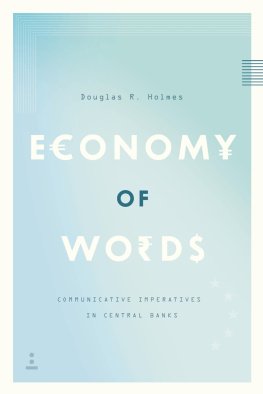

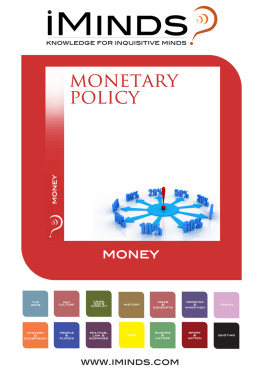
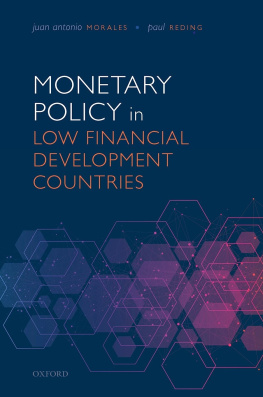

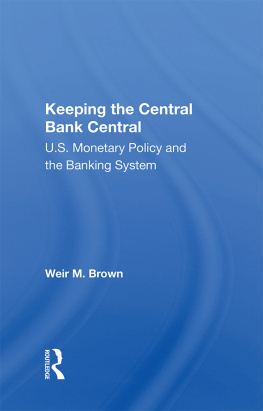

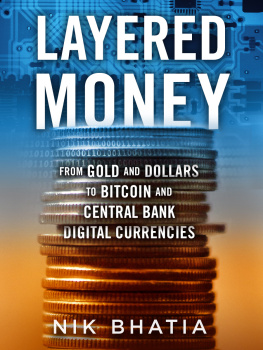
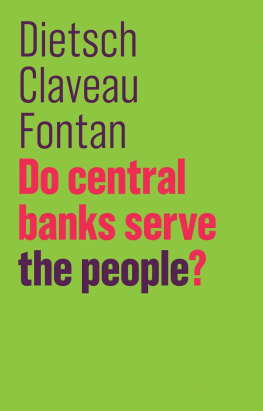
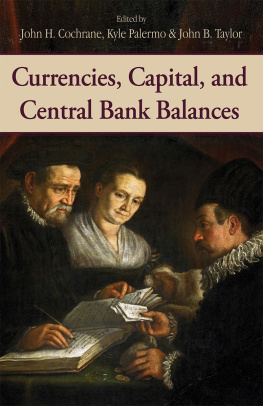
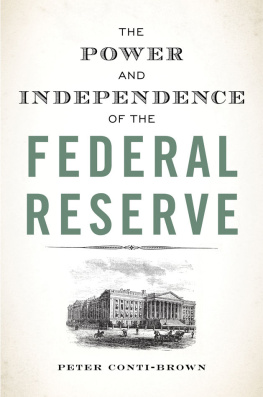
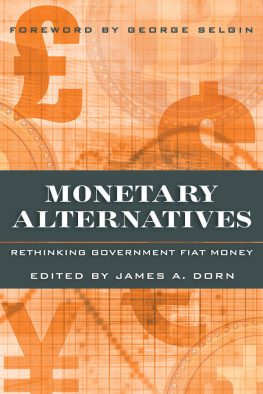
 This paper meets the requirements of ANSI/NISO Z39.48-1992 (Permanence of Paper).
This paper meets the requirements of ANSI/NISO Z39.48-1992 (Permanence of Paper).